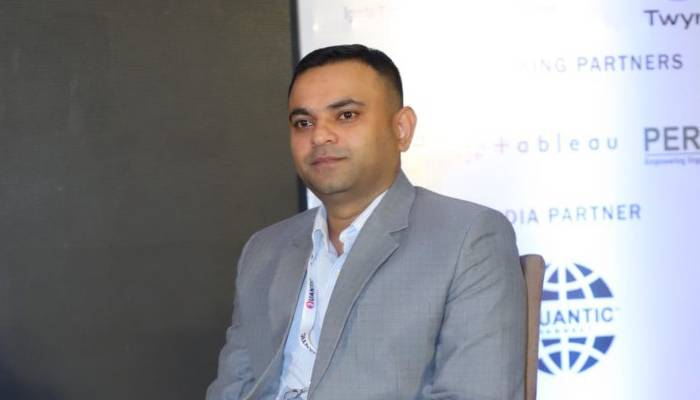From networking at Cisco to fintech innovation at Pine Labs, Rahul K. Rao’s career exemplifies adaptability across diverse sectors. In this conversation, he shares insights on embracing emerging technologies, leading cross-functional teams, and driving global expansion in the dynamic fintech landscape.
Your career trajectory spans multiple sectors, from networking at Cisco to telecom with Airtel, manufacturing, and now fintech with Pine Labs. What motivated you to transition across these diverse industries?
My career moves have been driven by a desire to learn and adapt to emerging technologies. At Cisco, I delved into networking. Accenture provided insights into IT systems. Airtel offered a deep dive into telecom and cloud infrastructures. The manufacturing sector presented the challenge of migrating ERP solutions to the cloud. Now, at Pine Labs, I’m exploring fintech’s complexities, especially around compliance and scalability. Each transition was fueled by curiosity and the pursuit of knowledge.
What aspects of Pine Labs attracted you to the fintech sector?
The fintech landscape is rapidly evolving, especially with the advent of UPI transactions transforming payment methods. Pine Labs stands at this intersection, focusing on data integrity and security in financial transactions. Conversations with our CTO, Sanjeev, highlighted the company’s innovative plans and global expansion strategies, particularly leveraging cloud technologies. This dynamic environment and the opportunity to contribute to such growth were compelling factors.
Can you outline your current roles and responsibilities at Pine Labs?
I oversee multiple domains within the Pine Labs group, including IT infrastructure, networks, on-premises systems, corporate IT, procurement, cloud infrastructure, DevOps, observability, and SRE teams. Our focus is on consolidating IT infrastructures across our subsidiaries—such as Mosambee, Setu, and Fave—to ensure compliance with regulatory standards like those from the RBI. We’re also enhancing our cloud adoption to improve scalability and user experience in our fintech operations.
“Generative AI holds significant potential, but our approach is pragmatic. We prioritize identifying specific use cases within our various business domains where AI can add tangible value.”
Rahul K. Rao, Director of Cloud, IT Infrastructure, and DevOps at Pine Labs.
With emerging technologies like Generative AI making waves, how is Pine Labs approaching these innovations?
Generative AI holds significant potential, but our approach is pragmatic. We prioritize identifying specific use cases within our various business domains where AI can add tangible value. Collaborating with cloud service providers like AWS and Azure, we aim to develop tailored solutions, particularly in areas like HR and finance. In DevOps, our primary goal is to achieve comprehensive observability across our application stack, ensuring optimal performance and user satisfaction.
As the new financial year unfolds, what key projects are on your agenda?
Several initiatives are underway. We’re conducting technology refreshes in regions like Southeast Asia and focusing on cloud cost optimization to manage expenditures effectively. Additionally, we’re expanding our cloud infrastructure to new geographies, carefully navigating data privacy laws and compliance requirements in each locale.
Could you shed light on Pine Labs’ international operations?
Beyond India, Pine Labs has a significant presence in Southeast Asia, offering services similar to those in our home market. We’re also active in Dubai, focusing on UPI and payment aggregation, with plans to extend our footprint to other GCC countries and the Philippines. Our growth strategy is centered on the Asian and GCC regions.
In your domains of cloud, networking, and DevOps, what challenges do you encounter, and how do you address them?
A primary challenge is fostering a culture of continuous learning and adaptability. Technological comfort zones can hinder innovation. To combat this, I emphasize cross-skilling, encouraging team members to broaden their expertise across various technologies. Leading by example, I demonstrate the value of versatility and staying abreast of industry advancements.
Resistance to change is common. How do you motivate your team to embrace new technologies?
Motivation stems from demonstrating the benefits of diversification. By cross-training team members—for instance, having a Linux expert gain proficiency in Windows systems—they recognize the value in expanding their skill set. Sharing my own experiences of navigating multiple domains underscores the importance of versatility in career growth.
What advice would you offer to peers and aspiring CIOs aiming for success across various sectors?
Pursue what genuinely interests you, rather than chasing market trends. Authentic passion leads to deeper understanding and innovation. Maintain curiosity, as it drives continuous learning and career progression.
Beyond Generative AI, which emerging technologies should professionals focus on?
Embracing open-stack solutions is crucial to avoid vendor lock-in. Technologies like OpenShift and containerization offer flexibility and scalability. Staying informed about cloud advancements is also essential, given their pervasive impact across industries.
What’s your perspective on quantum computing?
Quantum computing represents the next frontier in processing power, surpassing traditional limitations. Companies like NVIDIA are making significant strides, especially in AI applications. It’s a transformative technology that warrants close attention.


